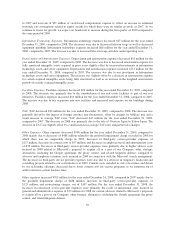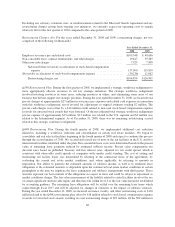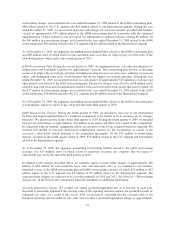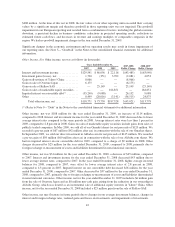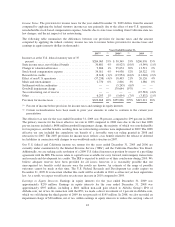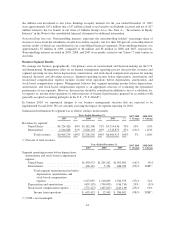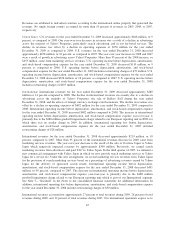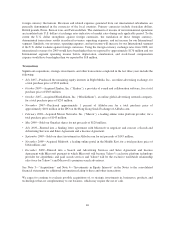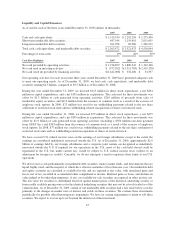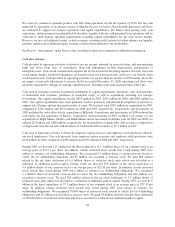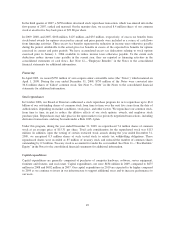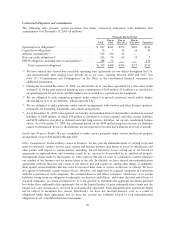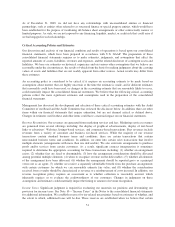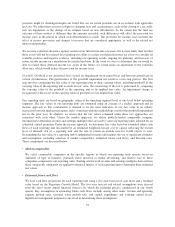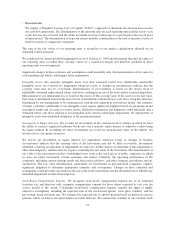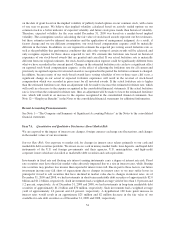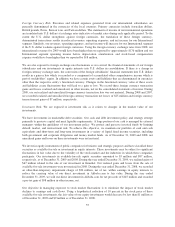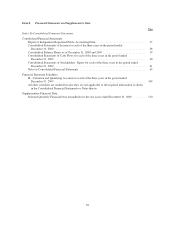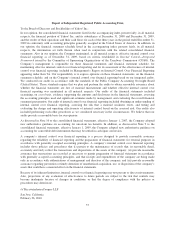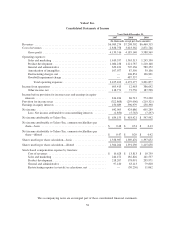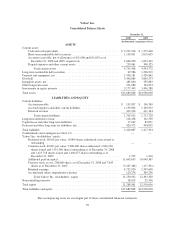Yahoo 2009 Annual Report Download - page 57
Download and view the complete annual report
Please find page 57 of the 2009 Yahoo annual report below. You can navigate through the pages in the report by either clicking on the pages listed below, or by using the keyword search tool below to find specific information within the annual report.In the third quarter of 2007, a $250 million structured stock repurchase transaction, which was entered into in the
first quarter of 2007, settled and matured. On the maturity date, we received 8.4 million shares of our common
stock at an effective buy-back price of $29.80 per share.
In 2009, 2008, and 2007, $108 million, $125 million, and $35 million, respectively, of excess tax benefits from
stock-based awards for options exercised in current and prior periods were included as a source of cash flows
from financing activities. These excess tax benefits represent the reduction in income taxes otherwise payable
during the period, attributable to the actual gross tax benefits in excess of the expected tax benefits for options
exercised in current and prior periods. We have accumulated excess tax deductions relating to stock options
exercised prior to January 1, 2006 available to reduce income taxes otherwise payable. To the extent such
deductions reduce income taxes payable in the current year, they are reported as financing activities in the
consolidated statements of cash flows. See Note 12—“Employee Benefits” in the Notes to the consolidated
financial statements for additional information.
Financing
In April 2003, we issued $750 million of zero coupon senior convertible notes (the “Notes”) which matured on
April 1, 2008. During the year ended December 31, 2008, $750 million of the Notes were converted into
36.6 million shares of Yahoo! common stock. See Note 9—“Debt” in the Notes to the consolidated financial
statements for additional information.
Stock repurchases
In October 2006, our Board of Directors authorized a stock repurchase program for us to repurchase up to $3.0
billion of our outstanding shares of common stock from time to time over the next five years from the date of
authorization, depending on market conditions, stock price, and other factors. We repurchase our common stock,
from time to time, in part to reduce the dilutive effects of our stock options, awards, and employee stock
purchase plan. Repurchases may take place in the open market or in privately negotiated transactions, including
derivative transactions, and may be made under a Rule 10b5-1 plan.
Under this program, during the year ended December 31, 2009, we repurchased 7.4 million shares of common
stock at an average price of $15.31 per share. Total cash consideration for the repurchased stock was $113
million. In addition, upon the vesting of certain restricted stock awards during the year ended December 31,
2009, we reacquired 0.3 million shares of such vested stock to satisfy tax withholding obligations. These
repurchased shares were recorded as $5 million of treasury stock and reduced the number of common shares
outstanding by 0.3 million. Treasury stock is accounted for under the cost method. See Note 11—“Stockholders’
Equity” in the Notes to the consolidated financial statements for additional information.
Capital expenditures
Capital expenditures are generally comprised of purchases of computer hardware, software, server equipment,
furniture and fixtures, and real estate. Capital expenditures, net were $434 million in 2009, compared to $675
million in 2008 and $602 million in 2007. Our capital expenditures in 2010 are expected to be higher compared
to 2009 as we continue to invest in our infrastructure to support additional users and to increase performance to
our users.
49


